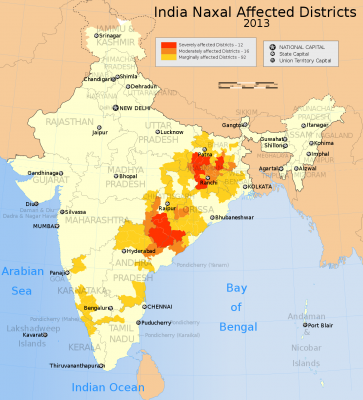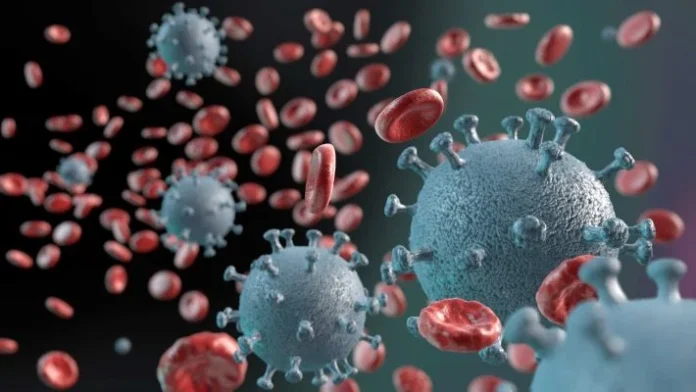As the country presently is under a lockdown in the wake of novel Coronavirus COVID-19, the activities of Communist Party of India (Maoist) – CPI (Maoist) herein referred as Maoists have been adversely affected. It is been reported that the rank and file of Maoists are facing acute shortage of food and other essentials. As a result, Maoists were compelled to call for ceasefire in the states of Andhra Pradesh and Odisha.
Senior Maoist leader Jallandhar Reddy alias Krishna, the ‘State Zonal Committee Member’ (SZCM) in Andhra Odisha Border Special Zonal Committee (AOBSZC), made a plea through a video for peace in the Maoist affected areas in Andhra Pradesh-Odisha Border region. He released a video that said there would be no offensive from the Maoist side as long as the people and the government fight against the virus. He, however, said that the Maoists would not hesitate to counter any offensive from the Security Forces (SFs) as a self-protection measure.
Similarly, the Malkangiri-Koraput-Visakha Border (MKVB) division’s committee secretary of Maoists named Kailasam released a hand-written statement in Telugu to the Andhra Pradesh media that stated “Our party, People’s Liberation Guerrilla Army (PLGA), an armed wing of the Maoist, and various frontal organisations of the party have decided against carrying out any kind of attack on the Security Forces (SFs) during this period”. He refuted media reports that some Maoists have been infected by Coronavirus.
A citizens’ body by the name of ‘NagarikaSachetanaManch’ in Rayagada district of Odisha has warned villagers not to harbour or have close contact with Maoist cadres as they could be infected by the virus because they move around in different states. The civic body put up posters at different places in the district and appealed to the villagers not to attend any meeting called by the rebels. The organisation also requested the rebels to shun violence and surrender before police and get them admitted to hospitals for treatment of COVID-19. Reportedly, such posters had also been found in Malkangiri district of the state, asking locals to stay away from the Maoists to prevent the spread of Coronavirus.

The call for ceasefire by Maoist cadres is not so the case in the states of Bihar, Jharkhand and Chhattisgarh. It is pertinent to recall that in the previous month, the Maoists carried out an attack in Chhattisgarh’s Sukma district killing 17 security personnel and injuring 15, two of them critically. This incident occurred after a joint operation of security forces comprising of District Reserve Guard (DRG), the Special Task Force (STF) and the Commando Battalion for Resolute Action (COBRA) of the Central Reserve Police Force (CRPF) were undertaking combing operations in Sukma’s Kasalpad area. This operation was conducted on receiving the information that a large number of Maoists were moving in the forests of Kasalpad towards Elmagunda. Maoists however managed to escape after looting 15 weapons including 12 AK- 47 rifles from the martyred security personnel.
Maoists from the Bastar division of Chhattisgarh are organising a gathering of people in their areas of influence in Bastar directing the village headmen and others to part with the ration they got from the state government in advance. The Maoist rebels are threatening villagers and demanding to hand over the BPL (Below Poverty Line) ration which they got under the public distribution system scheme. This has shown the desperation from the side of Maoists to exploit the villagers for meeting their ends.
Maoist call for ceasefire and suspension of their operations in their certain areas of dominance was not by any means for the security forces to lower down their guard. In fact, Security Forces have been deployed in Bastar division of Chhattisgarh and alerts have been issued against violent attacks after SFs received inputs indicating large groups of Maoist cadres regrouping in the area to take advantage of the ongoing lockdown amid the spread of COVID-19. Reports said that armed cadres of the Maoists have been undertaking meetings in the districts of Jagdalpur, Dantewada, and Sukma of Bastar division. Multiple inputs received by the security agencies suggest that a large group has entered into the area from Andhra Pradesh, Telangana, Maharashtra, Jharkhand, Odisha, West Bengal, and even Nepal.

Jharkhand has also continued their vigil and operations after a spate of Maoist related incidents were reported including an encounter in West Singhbhum district. Central Reserve Police Force (CRPF) Inspector General (IG) Raj Kumar said, “The administrative deployment to implement the lockdown is mainly in urban and semi-urban areas. It is not hindering the movement of the extremists in the forests. The recent incidents demonstrate that they are active. The tri-junction of Ranchi, Khunti and Chaibasa districts, the Parasnath hills in Giridih and Budha Pahar in Bokaro are some of the rebel hotspots in the state.”
Jharkhand Police IG Saket Kumar Singh said, “So far, we have no information regarding any ceasefire announced by the extremists in Jharkhand. Police are also launching operations against the rebels. Our forces engaged in anti-Naxal operations have not been diverted to COVID-19 works so far.” The elite C-60 commandos at Gadchiroli district in Maharashtra have also continued their routine anti-Maoist operations and taken necessary steps to ensure that there are no incidents of infection among the police forces.
The Central Armed Police Forces (CAPFs) have been at the forefront of spreading awareness about the global pandemic and providing support and assistance to villagers in Maoist affected areas. Some of the surrendered Maoists are helping in the relief work by stitching masks. However, there are several challenges that include taking adequate safety and health precautions for security forces operating in Maoist affected regions, addressing the concerns of the return of migrant labourers belonging to Maoist affected areas, setting up health camps and mobile hospitals for villagers in Maoist affected districts and villages. Free medicines, soaps, masks and sanitary napkins must be distributed along with government sponsored rations.
Local police personnel familiar with local languages as well as surrendered Maoists could be enlisted to aid in spreading public service information to the tribal populations pertaining to safety, sanitation and self-isolation. Overcoming the COVID-19 threat in Maoist affected districts would require strict vigilance against Maoist activities as well as comprehensive protection of the local populations.
The author is a researcher at Manohar Parrikar Institute for Defence Studies and Analyses (MPIDSA). Views expressed are of the author and do not necessarily reflect the views of the MPIDSA or of the Government of India






